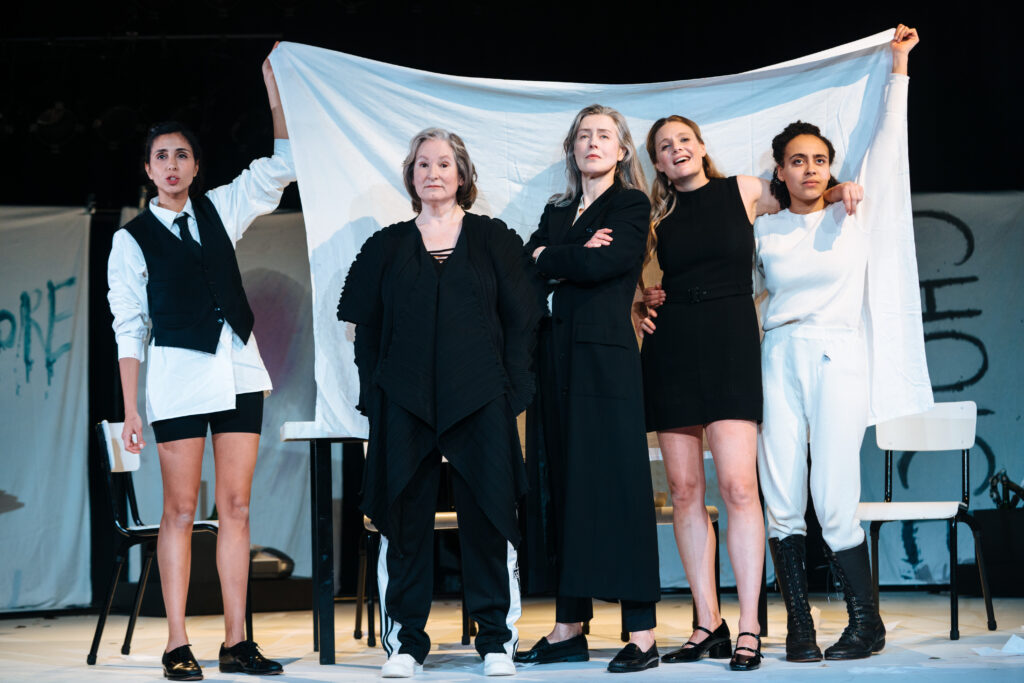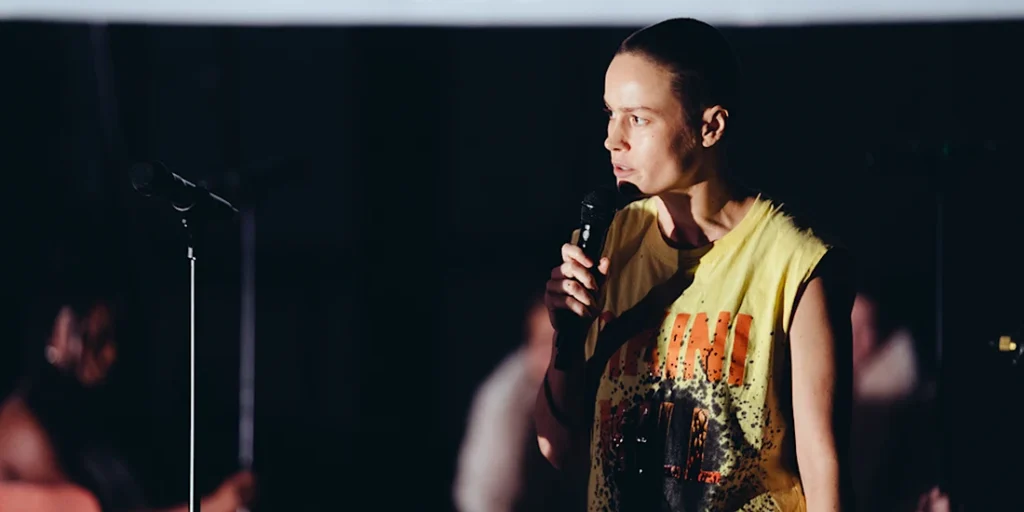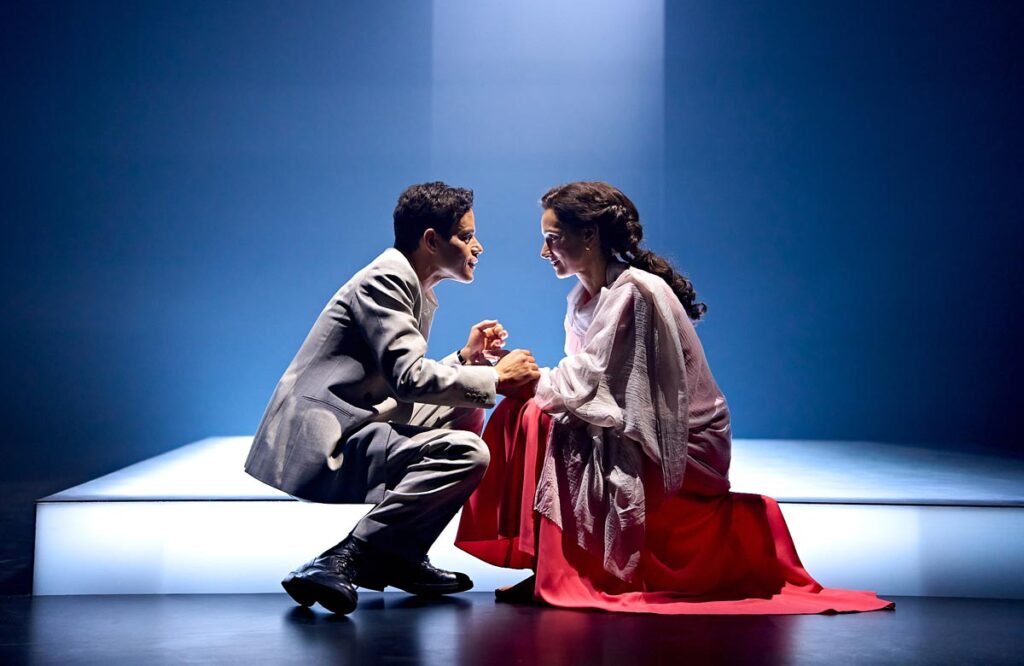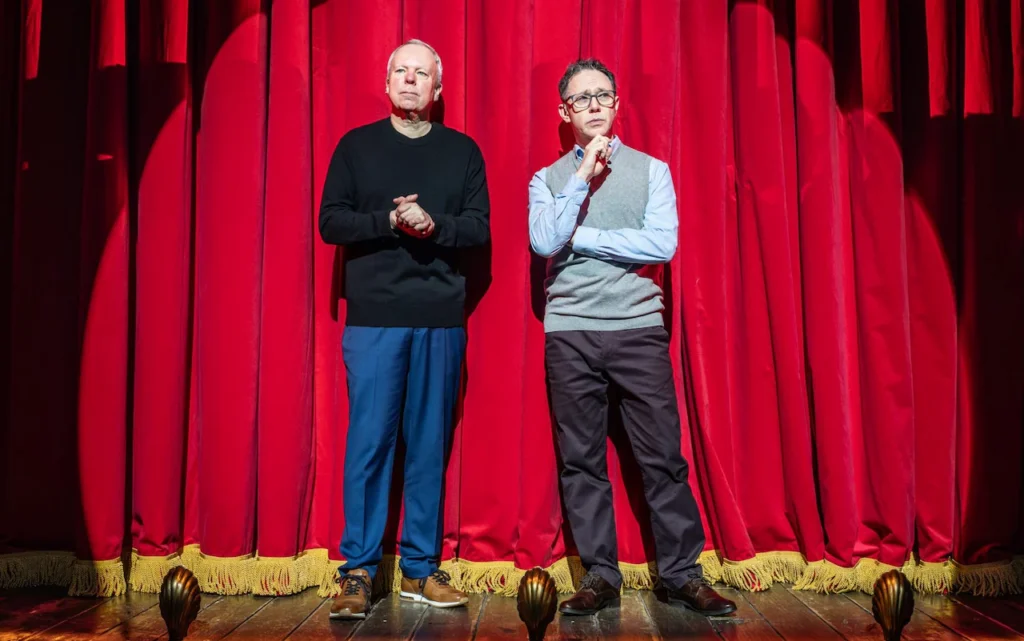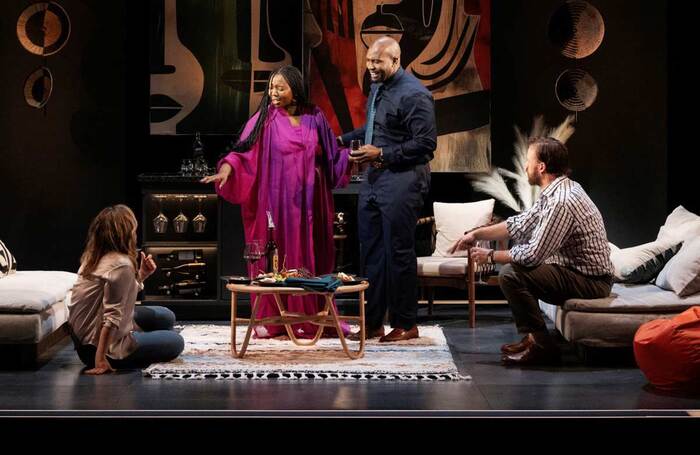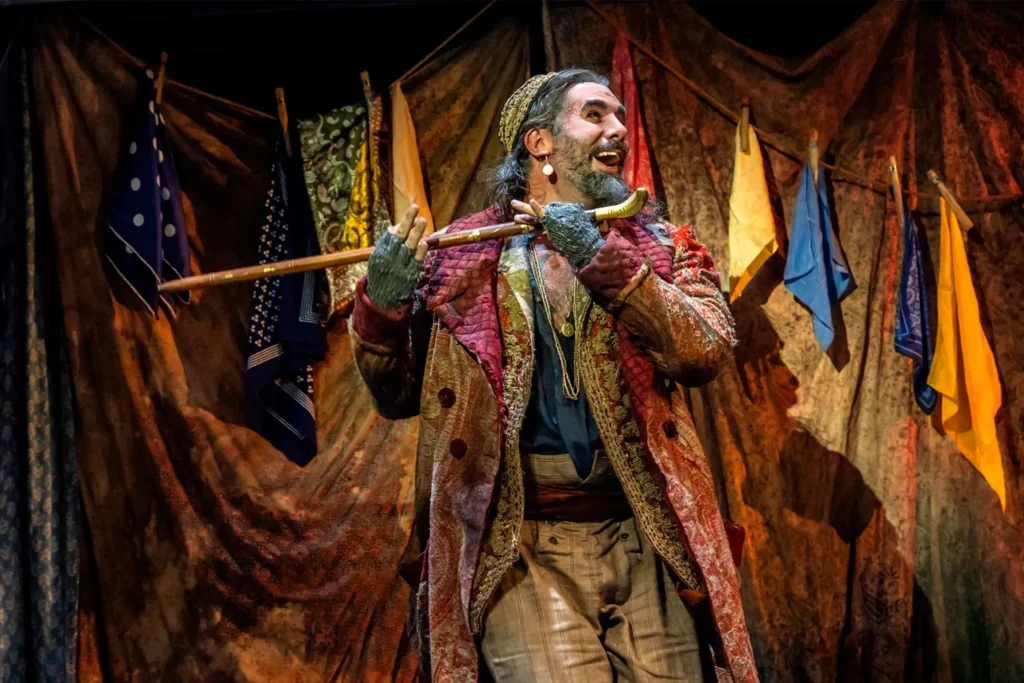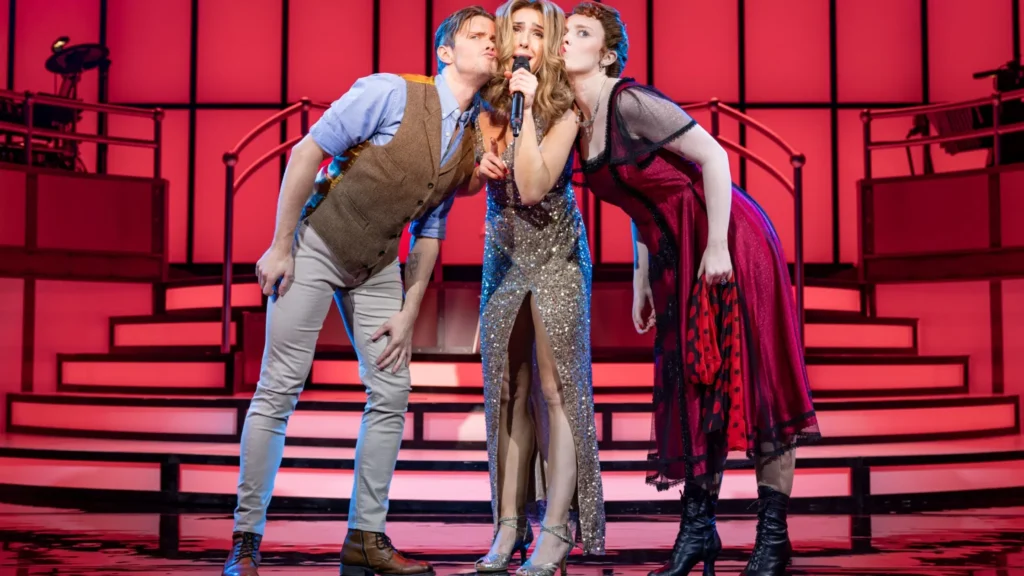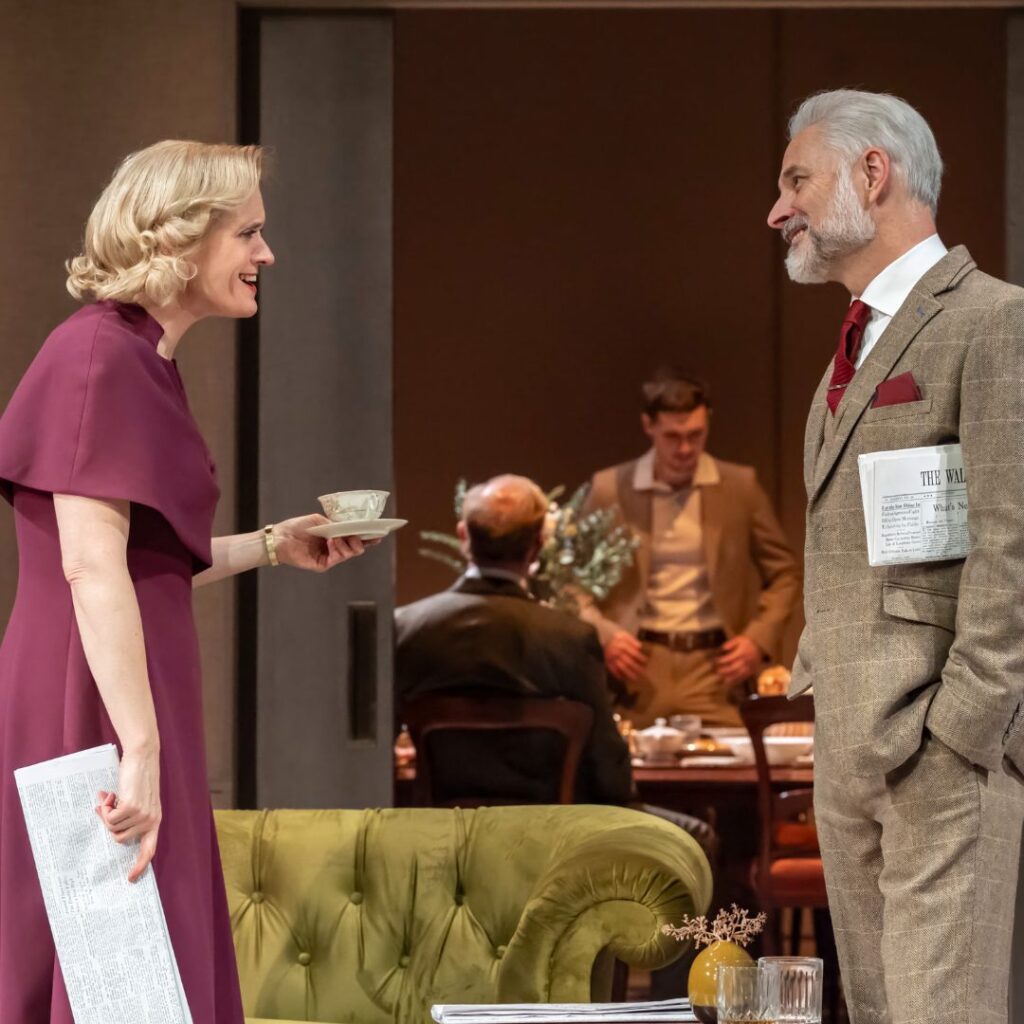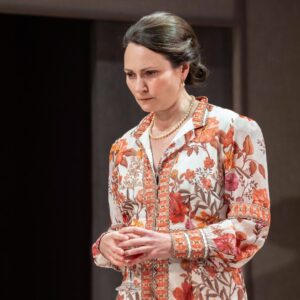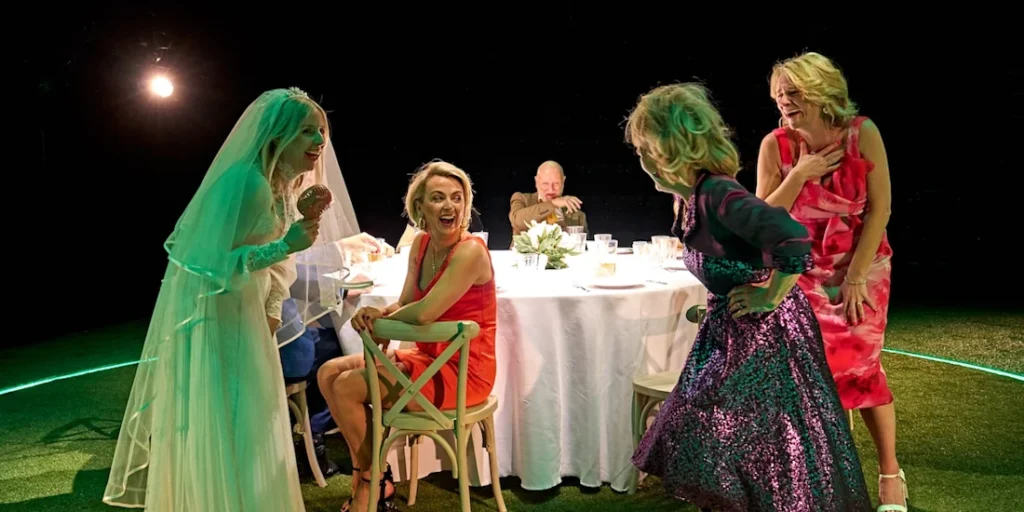Two plus one equals a challenging comedy
★★★★
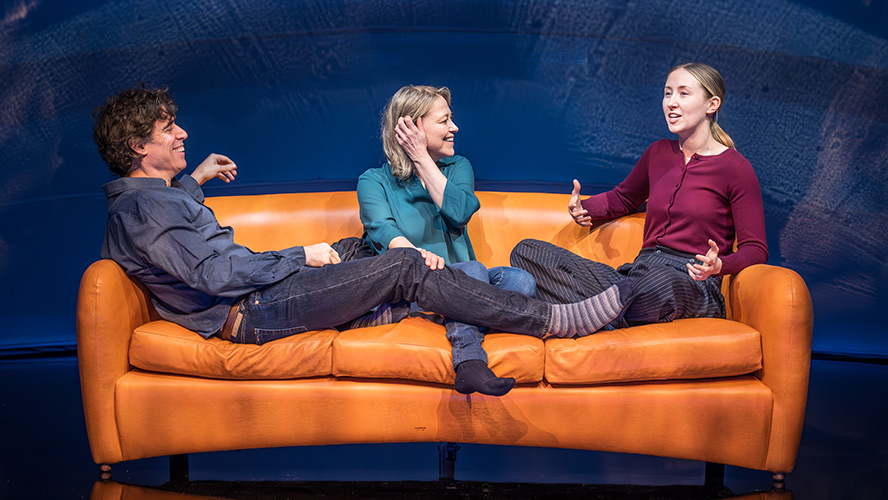
Unicorn is about a middle-aged couple played by Nicola Walker and Stephen Mangan who are attracted to the idea of introducing a third person into their relationship- in the form of a younger woman played by Erin Doherty.
This makes it a difficult play to review. Not because of some of the language- although that’s a problem too- but because so much of the play is about whether they will or won’t go ahead. I’ll do my best to talk about this adventurous comedy without giving away any spoilers.
Here are some things I can tell you about Unicorn. It’s funny, although the light-heartedness does give way to something deeper in the second half. I can also tell you it’s about emotional relationships rather than a simple threesome (if indeed a threesome is ever simple). And, even if it is about more than physical gratification, there is nevertheless much frank- and indeed filthy- talk about sex.
Having said that, if you were hoping to see these beloved stars in the buff, or were perhaps dreading the embarrassment of seeing bits of them that are normally covered up, there are no depictions of sex. They don’t even undress, well, Nicola Walker does take her shoes off. Frankly, it’s shocking enough to hear Nicola Walker and Stephen Mangan talking about sex in explicit four letter words- yes, even that word- without them actually doing it.
Our middle-aged couple still say they love one another but wonder if a third person might spice things up their sex life. Fortunately Polly, played by Nicola Walker at her most hesitant and nervously sensual, is a lecturer, and one of her mature but much younger than her students has the hots for her. And she feels the same.
Normally, if that’s the right word in this unusual situation, it’s difficult to find a young woman who wants a relationship with an older couple. (I’m not saying this from personal experience- it’s what we’re told in the play.) As rare as a unicorn, in fact. But fortunately, Kate, played by Erin Doherty, is interested, and so the story begins. The very word ‘unicorn’ may suggest a fantasy but we go with it because this is a scintillating script by Mike Bartlett, and these three actors, under James Macdonald’s direction, know exactly what to do with it. Their comic timing is exquisite.
Erin Doherty nails the younger woman: frank, matter-of-fact and with a clear picture of what she wants. She talks loud and without hesitation. The generational gap is portrayed well. Stephen Mangan as Nick is especially good as an older man tying himself in knots as he tries to contain what he fears is stereotypical masculinity. He and Nicola Walker capture that respectful tone of the woke London middle class who are aware they shouldn’t offend or take risks, so beat about the bush and constantly retreat from what they really want. ‘It’s entirely possible that on some level this is inappropriate,’ says Polly to Kate. Even when they kiss, all three contain any passion they might feel in favour of conversation.
So we journey through the first half continuing a will-they-won’t-they situation. At this point, I think I can add something to my plot summary. It might be a spoiler but I doubt you imagine this prevarication, funny as it is, could possibly continue for over two hours. In the second half, they do get together, but only after some significant turning points in all their lives. We find that 30 year old Kate is increasingly the driving force in the potential three-way relationship, and we realise why. She comes to represent not only hope for the throuple but also a wider hope for humanity.
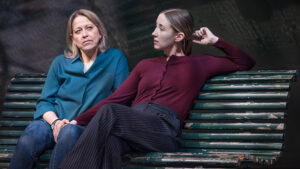
As we move into the dynamics of the menage-a-trois, and its ups and downs (no innuendo intended), the humour subsides a little in favour of more philosophical conversations. To summarise: we live in dangerous times, when the world and our bodies are threatened by pollution. We’re brought up on Disney happy-ever-after movies and bicycles made for two. So our primary choice of heteronormative coupling is tied up with this failed society. A willingness to try new, honest ways of living and loving could be the path to happiness and a better world.
It’s clear from the start that this particular arrangement is so rare that it is close to a fairy tale, a fairy tale that even features a unicorn. Then again, children’s fairy tales are a way of tackling the challenges offered by a world that can seem dark and forbidding. I don’t want to say whether their happiness ultimately comes from their being all together or working out different kinds of relationships, but I certainly came out of the theatre feeling upbeat about the world.
Miriam Buether’s set is half of a dome, the other half being in effect the fourth wall. It occasionally concertinas up at the back to allow an entrance. The impression is that the three are contained within a cocoon, thus adding to the feeling that they are in a fantasy world. The backdrop is bathed in different colours, and sometimes Natasha Chivers‘ lighting design casts multiple shadows. I’m not sure if that’s to indicate the multiple possibilities of modern relationships or more mundanely to make the image of two or three people on stage more visually stimulating. There are few props- chairs or a sofa to sit on, a bed to lie on. Refreshingly, both designer and director take a discreet approach that lets the actors to do their job.
I certainly wouldn’t go see Unicorn if you’re hoping for an erotic evening, but if you take it as a fantasy delve into changing attitudes to relationships, then it’s both interesting and funny. If nothing else, it will get you talking, and who knows what that might lead to.
Unicorn can be seen at the Garrick Theatre until 26 April 2025.
Paul paid for his ticket.
Click here to watch this review on the YouTube channel Theatre Reviews With Paul Seven
